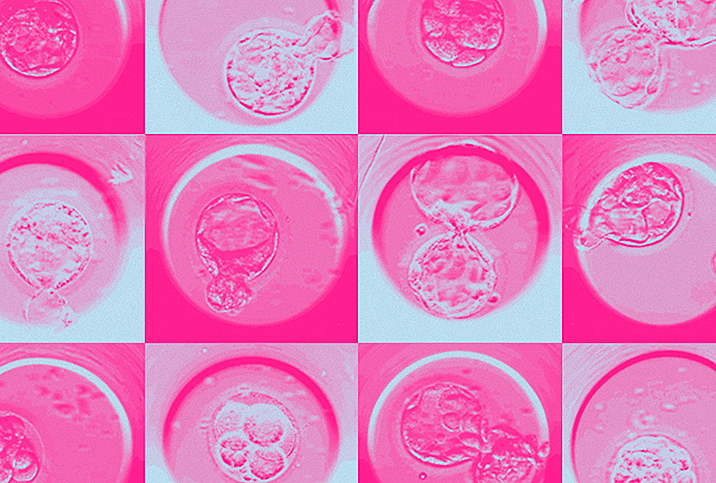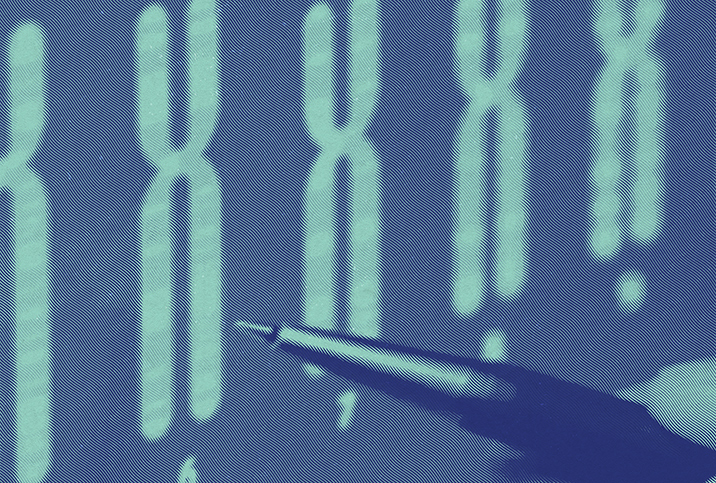What to Expect on Egg Retrieval Day

If you're one of the more than 33 percent of American women who undergo in vitro fertilization (IVF) every year, you'll likely experience egg retrieval day. While that may sound intimidating, it's a minimally invasive procedure—meaning it usually results in no scars and a short recovery time.
Egg retrieval is a pivotal day in your IVF journey, so we asked experts to walk us through this simple but important procedure.
How egg retrieval day is determined
Before egg retrieval day, you will be prescribed fertility medicines to stimulate the production of many eggs, rather than a single egg in a natural cycle. Once you ovulate (which is equivalent to day 14 of an idealized 28-day cycle), the egg(s) will be retrieved. Depending on how your ovaries respond to the fertility drugs, your ovulation can range from day 11 to day 17 of your cycle.
Once it is determined that an egg (or more) has matured, you will get what is referred to as a trigger shot (a shot containing hcG, the pregnancy hormone), and your egg retrieval day will be scheduled within 35 hours. This shot causes the eggs to mature and release in preparation for retrieval, allowing them to be surgically harvested just before your body would release them on its own.
Preparation is key
Even before the procedure itself, you need to prepare your body for what is to come.
To ease your nerves, getting your questions answered before the procedure helps.
James Grifo, M.D., Ph.D., program director at NYU Langone Fertility Center and chief executive physician at Inception Fertility, explained the logistics of procedure prep: "Because patients are placed under general anesthesia, they are prohibited from eating or drinking within six hours of the procedure. Patients are sedated for up to 30 minutes, with the procedure itself taking...approximately 5 to 10 minutes."
While it's helpful to know exactly what to expect, it's also good to prepare yourself for the potential anxiety.
"People may feel anxious before the procedure, so be sure to ask about what to expect, get questions answered on the day of the procedure, and ask about taking relaxing medication before the procedure if you are concerned about your anxiety," said Lora Shahine, M.D., FACOG at Pacific Northwest Fertility.
The big day
On the day itself, you will need to go into the office in your most comfortable (though still presentable) clothes—but no makeup, perfume or even contact lenses. The hospital or clinic will provide a locker or room where you can change and store your belongings.
When you've changed, a nurse or your specialist will brief you on what to do after egg retrieval. Don't worry about remembering all of it, as you will be provided a written set of instructions when you go home.
The egg retrieval procedure takes around 30 minutes to complete, with some variation depending on the patient, Shahine explained.
"Every clinic and patient's experience will be slightly different on their egg retrieval day, but expect to be at the clinic for one and a half to two hours total, including getting ready, the procedure and recovery," Shahine continued. "On checking into the clinic, your ID will be confirmed, [you'll] change into a procedure gown [and] the team should introduce themselves and tell you what to expect that day."
You will then be moved to the procedure room, where the anesthesiologist will insert an IV and put you under twilight anesthesia. This modified anesthetic procedure puts you under a medication-induced sleep, but you can breathe without specialized tubes.
Guided by ultrasound, your doctor will identify your ovaries, then carefully insert a thin needle connected to a catheter via your vaginal wall. This will enable them to draw eggs out one by one using light suction. Next, your eggs will be collected in test tubes marked with your name and personal ID number for records. These tubes will then be given to the resident embryologist.
Your post-surgery experience
Once the eggs have been retrieved and the needle has been taken out, the doctor will check your ovaries and vaginal wall to stem any bleeding. It's a process that will take between 15 to 20 minutes. Post-procedural recovery will be monitored for 30 minutes to an hour.
Grifo said, generally, it takes patients around one hour to recover. Still, every patient is different, and some may require more time. For the recovery period, you will need to rest, be evaluated and receive postoperative instructions.
"It's also important to stay hydrated after egg retrieval," Griffo stressed. "Patients may also take oral pain-relieving medication."
Lastly, you will be discharged to a responsible adult who will ensure your safe return home.
'Plan to rest the day of your procedure—do not make plans that involve anything other than lying on your couch and catching up with your favorite show or podcast.'
As with any surgical procedure, egg retrieval does pose a few risks and may cause some side effects. But keep in mind that no two women are alike. One's experience may be completely different from someone else's.
"Upon waking up from the procedure, some people have nausea, pain, vaginal spotting, and bleeding. Patients can receive medication to help their symptoms and don't leave for home until they're feeling better," Shahine said. "Your team will provide instructions for recovery and precautions for when to call the team, such as nausea that is persistent, pain not relieved by medications provided and more. You should have an after-hours number to call in case of questions after the clinic closes."
According to Grifo, the most common side effects of an egg retrieval include cramping, spotting, pain/discomfort and constipation. However, these should all subside within a few days. If, however, symptoms get worse, Grifo stresses you should call your doctor right away.
As with most procedures, rest is key to recovery. "Most people proceed with and recover from the egg retrieval well," Shahine said. "Plan to rest the day of your procedure—do not make plans that involve anything other than lying on your couch and catching up with your favorite show or podcast. Then, plan to celebrate your completion of the egg retrieval—it's a big hurdle on your journey."
What results to expect
No two women undergoing the procedure will have the exact same results, said Grifo. The same goes for the number of eggs that will be retrieved. Therefore, you need to remember that the number of eggs retrieved is hinged on several things, such as ovarian reserve and age.
If you are contemplating IVF, don't hesitate to ask your doctor questions. You can also learn from those who have gone through the procedure themselves. Reach out to other women through IVF support groups or ask around to your friends and family. There are plenty of people who've gone through exactly what you're about to experience. Ultimately, adequate mental, physical and emotional preparation is key to a successful egg retrieval day.


















